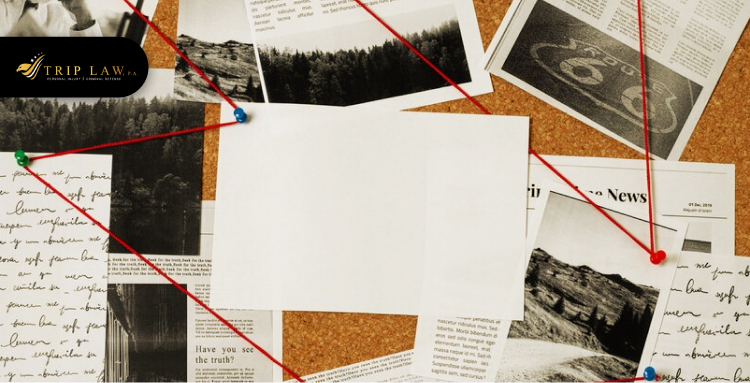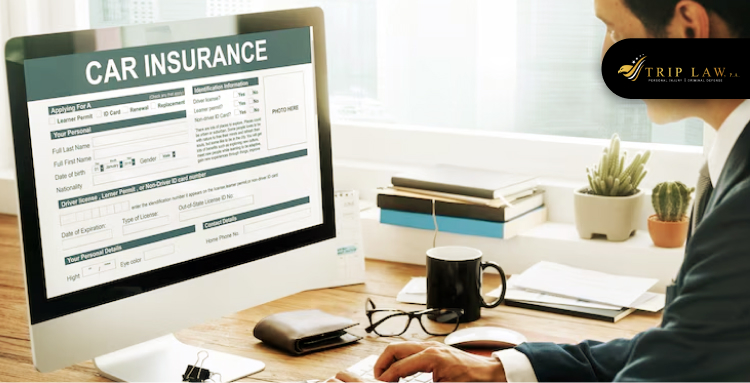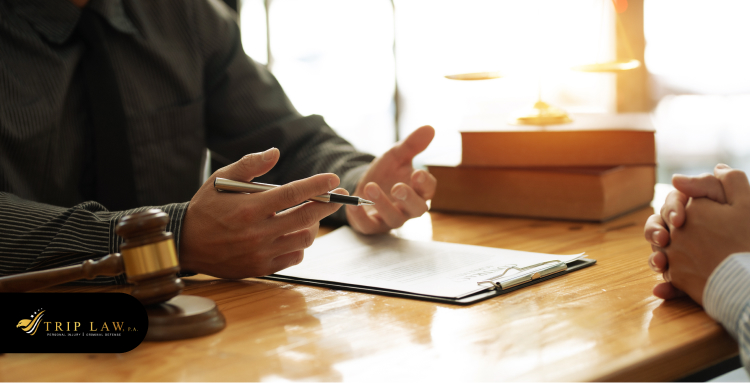
Blogs
December 28, 2024
What Should You Do if You’re Injured in a Truck Accident

A truck accident can upend your life in an instant. One moment, you’re navigating Milwaukee’s bustling streets; the next, you’re facing serious injuries, vehicle damage, and an overwhelming list of decisions that demand immediate attention. It’s disorienting and, for many, deeply unsettling.
We recognize the physical pain and emotional strain that can accompany such a traumatic event. That’s precisely why we’re here—to guide you forward with clarity and confidence during this critical time. Here’s what you need to know and do following a truck accident in Milwaukee to ensure you are fully protected.
(1) Call Emergency Services: Your First Crucial Step
Your first priority after a truck accident is to alert emergency services by calling 911. This ensures that both medical assistance and law enforcement are dispatched to the scene promptly. In Wisconsin, state law requires drivers to report any accident resulting in injury, death, or significant property damage.
When the Milwaukee Police Department or other local authorities arrive, they will document the scene, assess fault, and compile a formal accident report. This report serves as a vital record, capturing critical information such as weather conditions, vehicle positions, and witness statements. By involving law enforcement immediately, you not only comply with Wisconsin legal requirements but also lay the foundation for a strong personal injury claim.
(2) Prioritize Your Health: Seek Medical Attention Promptly
Truck accidents can lead to serious injuries, including spinal damage, head trauma, and fractures. Often, the most significant injuries may not be immediately obvious, as symptoms can take hours or even days to appear. It’s important to seek medical attention without delay, even if you feel fine at first.
A prompt medical evaluation is essential for two key reasons:
It ensures that any injuries are properly diagnosed and treated, and it provides important documentation for your personal injury case.
Medical records, including doctor’s notes and diagnostic results, play a pivotal role in linking your injuries to the accident, strengthening your case to pursue legal action.
(3) Preserve Evidence at the Scene for a Stronger Case

If your physical condition allows, collecting evidence at the scene is crucial for supporting your case. The more detailed the documentation, the stronger your position will be in any subsequent claims or legal actions.
Photos or videos: Start by taking clear photographs or videos of the accident scene. Capture shots of the truck, your vehicle, and the surrounding area. Be sure to include visible damage, license plates, and any injuries you or others may have sustained. This visual evidence will be vital in illustrating the extent of the collision.
Witness information: Next, speak with any witnesses. Obtain their full names, contact details, and a brief account of what they saw. Their testimonies can add credibility and depth to your version of events.
Truck details: Note any relevant details about the truck involved, such as the trucking company’s name, truck license number, and identifying markings. The more specific the information, the easier it will be to trace the vehicle. Additionally, this approach will uncover any critical safety violations or regulatory breaches.
(4) Protect Yourself: Why Not Admitting Fault Can Benefit You
In the aftermath of a truck accident, it’s essential to refrain from admitting fault, whether to the truck driver, their employer, or even law enforcement. While emotions may be high and the urge to explain yourself strong, it’s crucial to stick to the facts when describing the incident.
In Wisconsin, as in many other states, fault in an accident is determined based on the available evidence and the specifics of the law. Even a minor comment about the accident could be misinterpreted as an admission of responsibility, which may complicate your case later.
For example, phrases like "I'm sorry" or "I didn’t see you" may be taken out of context and used against you, even if they were not intended to admit fault. The legal process involves a careful review of the evidence, and prematurely claiming fault could limit your ability to recover compensation, particularly in light of Wisconsin’s comparative negligence laws.
(5) Notify Your Insurance Provider Wisely and Strategically

It’s important to notify your insurance company about the accident as soon as possible, as most policies require prompt reporting. Be truthful when providing the details, but avoid offering a recorded statement until you've consulted with an attorney.
Consulting with a lawyer before giving a recorded statement ensures that you’re protected. They can guide you on what to say, ensuring that your words cannot be misinterpreted or twisted. Insurance adjusters are trained to look for inconsistencies or statements that could potentially be used to minimize your claim.
While it's your responsibility to report the accident, remember that adjusters may seek to downplay your damages or shift the blame. Anything you say in an initial conversation can be scrutinized and used against you later in the claims process. That’s why, it’s best not to notify your auto insurance company about the accident when you don't intend to use coverage.
(6) Understand Wisconsin’s Comparative Negligence Law
In Wisconsin, compensation can be reduced if you’re found partially at fault for the accident, thanks to the state’s comparative negligence law. Under this statute, you can still recover damages even if you're partially responsible, but your settlement or verdict will be reduced in proportion to your percentage of fault.
For example, if the court determines you were 20% at fault, your recovery will be reduced by 20%. That means, for an accident where the total damages are $100,000, you would be able to recover $80,000.
However, Wisconsin law also states that if you are more than 50% at fault for the accident, you are barred from recovering any damages. This means that if your fault exceeds 50%, you will not be entitled to compensation for injuries or property damage.
Why Milwaukee Legal Pros Is the Right Choice for You

Truck accidents present unique challenges that go beyond the typical car accident. Involving multiple parties such as trucking companies, insurance providers, and federal regulations, these cases require a high level of expertise. An experienced personal injury attorney can navigate these complexities and ensure your rights are fully protected.
Here’s how Milwaukee Legal Pros can assist you:
We will meticulously investigate the accident, reviewing all aspects of the incident, including the driver’s logbooks, truck maintenance records, and any violations of federal trucking regulations.
Our team manages all communication with insurance companies and trucking firms. We’ll handle all negotiations, and ensure you’re not taken advantage of and that you receive fair treatment.
We will work tirelessly to secure the maximum compensation you’re entitled to, covering not just medical bills and lost wages, but also pain and suffering and long-term care costs.
Contact us today for a free consultation. Let us help you get the compensation you deserve and provide the expert legal support you need during this difficult time.
Our Latest News













At Trip Law we set out to create a unique law firm where outstanding immigration representation and a deep commitment to humanity go hand in hand. Hardam H. Tripathi was a former legal professional in the federal government.
